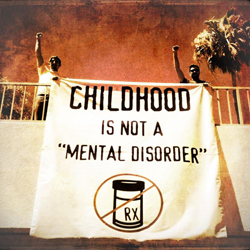
‘ADHD Awareness’ Month—it’s good for Big Pharma, bad for kids
Fraudulent Information being passed off under the guise of “ADHD Awareness,” Doesn’t Deserve the Time of Day, Let Alone a Month By Kelly Patricia O’Meara…


Fraudulent Information being passed off under the guise of “ADHD Awareness,” Doesn’t Deserve the Time of Day, Let Alone a Month By Kelly Patricia O’Meara…
As part of the Star’s ongoing investigation into drug side-effects, recent articles have also revealed nearly 600 cases of Canadian kids suffering serious, sometimes fatal side effects suspected to have been caused by ADHD medications since 2001.
(NaturalNews) If you have ever seen a commercial for a pharmaceutical drug, you are probably familiar with the long list of dangerous side effects that are rattled off in the last five seconds of the advertisement, just after viewers are told how Drug “X” is going to save their lives, improve their memories or give them unlimited energy. What was that? Did he just say that pill might cause bleeding out of my eyes? Drug companies do a great job – and spend a lot of money – to ensure that most consumers aren’t aware of the harmful side effects of common drugs prescribed for conditions like depression, heart disease, arthritis, ADHD or high blood pressure. Unfortunately, the result of this has created a society where the average person with a health problem is captivated by the promises delivered in clever advertising. There is a drug for everything? All I have to do is talk to my doctor? How convenient.
But what if there was a way to take back control of our lives and our health? What if, despite talking to your doctor, you still have questions or concerns about the safety of a drug?
The Citizens Commission on Human Rights International (CCHR) has a database that allows you to do just that. It’s called the Psychiatric Drug Database, and it allows consumers to research the potential side effects of common psychiatric drugs, such as Ritalin or Wellbutrin.
Congressman Ron Paul has re-introduced H.R. 2769, known as The Parental Consent Act of 2011 – A bill which prohibits federal funds from being used to establish or implement any universal or mandatory mental health, psychiatric, or socioemotional screening program.
Not only did the DSM become the bible of psychiatry, but like the real Bible, it depended a lot on something akin to revelation. There are no citations of scientific studies to support its decisions. That is an astonishing omission, because in all medical publications, whether journal articles or textbooks, statements of fact are supposed to be supported by citations of published scientific studies. (There are four separate “sourcebooks” for the current edition of the DSM that present the rationale for some decisions, along with references, but that is not the same thing as specific references.) It may be of much interest for a group of experts to get together and offer their opinions, but unless these opinions can be buttressed by evidence, they do not warrant the extraordinary deference shown to the DSM. The DSM-III was supplanted by the DSM-III-R in 1987, the DSM-IV in 1994, and the current version, the DSM-IV-TR (text revised) in 2000, which contains 365 diagnoses. “With each subsequent edition,” writes Daniel Carlat in his absorbing book, “the number of diagnostic categories multiplied, and the books became larger and more expensive. Each became a best seller for the APA, and DSM is now one of the major sources of income for the organization.” The DSM-IV sold over a million copies.